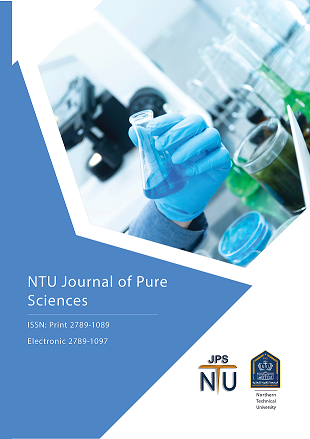Hematological changes in IBS patients with intestinal parasites
DOI:
https://doi.org/10.56286/ntujps.v2i1.341Keywords:
Irritable bowel syndrome (IBS), intestinal parasite, hematological parameters. IntroductionAbstract
Irritable bowel syndrome (IBS) was a chronic functional gastrointestinal disorder with an estimated prevalence of 10% around the globe. (IBS) is a common characterized by recurrent abdominal pain or discomfort associated with altered bowel habit. Humans and animals gut contain intestinal parasites live in, and the intestinal wall is preferred for most of these parasites. Human intestine contaminated by many parasites, the most common of them are intestinal worms, Giardia, blastocyst and others. Method: The current study was conducted on 76 Iraqi participants suffering from Irritable Bowel Syndrome, and the diagnosis is made by the consultant physician, according to clinical signs and laboratory diagnosis (blood test (WBC, NEU, LYM, Hb), during the period from November 2021 to March 2022. Blood The sample (2 ml) was drawn intravenously with a sterile injection and then emptied in a plastic tubes containing EDTA anticoagulant and a complete blood count(CBC) test was performed. A stool sample was taken and examined under a microscope to see if the sample contained parasites or not. Result: We have noticed the presence of different types of parasites in 54 samples with irritable bowel syndrome, the most prominent of them Blastocyst hominis and Entamoeba histolytica and 22 samples that do not contain parasites, after the laboratory diagnosis , the result was that: the ratio of white blood cell (WBC) and lymphocyte (LYM) increased, but decrease occurred in the ratio of Hb for the IBS patient infected with parasite. Conclusion: This study proved that the highest rate of parasite infection was for Blastocystis hominis and the lowest percentage for Teania saginata which also affects the hematological parameters in patients with irritable bowel syndrome.
Downloads
Downloads
Published
Issue
Section
License
This work is licensed under a Creative Commons Attribution 4.0 International License (CC BY 4.0), which permits unrestricted use, distribution, and reproduction in any medium, provided the original work is properly cited.









